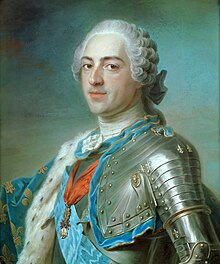Luigi
English
[edit]Etymology
[edit]Borrowed from Italian Luigi. Doublet of Ludovico, Luis, Ludwig, and other cognates. The verb sense emerged shortly after the December 2024 killing of American healthcare CEO Brian Thompson by accused perpetrator Luigi Mangione.
Pronunciation
[edit]Audio (General American): (file)
Proper noun
[edit]Luigi
- A male given name from Italian, equivalent to English Louis.
- 1952, Paul Brickhill, “The Man who Would Not Die”, in Escape—or Die: Authentic Stories of the R.A.F. Escaping Society, London: Pan Books Ltd., published 1956, page 106:
- A motherly woman lived there with her son, Luigi, a gay young man with an olive-oily skin, glistening teeth and a rubbery smile.
- 2011, J.C.R., Sally A. Forehand, J C R Forehand, Murder at the St. Louis Worlds Fair, page 75:
- As the senior mafia padrone, Luigi Sansone used his four-man mafia team to start collections from Sicilian businesses on the Hill.
Verb
[edit]Luigi (third-person singular simple present Luigies, present participle Luiging, simple past and past participle Luigied)
- (This is a hot sense, kept provisionally) (Internet slang) To assassinate.
- 2024 December 17, “Company Of Luigied CEO Has Been Fucking Over Autistic Kids”, in The Opinionated Ogre[1], archived from the original on 2024-12-17:
- ProPublica was working on this story before UHC’s CEO got Luigied:
- For more quotations using this term, see Citations:Luigi.
Italian
[edit]
Alternative forms
[edit]- Aluigi, Aligi, Alvise, Aloise, Aloisio (prothetic variants)
- Luvisi, Lovisi, Lovise, Loisi, Loise
- Luigio, Luiso
- Clodoveo, Ludovico (Latinism)
Etymology
[edit]Adaptation of Old French Louis, Looïs, Luis, from Latin Ludovīcus, from Old High German *Hlūtwīg or Frankish *Hlōdowig, from Proto-Germanic *hlūdaz (“loud, famous”) + *wīgą (“battle”).
Compare English Louis, Spanish Luis, German Ludwig, Sicilian Luici. Compare the same phono-morphological output also for Parigi (“Paris”), Tamigi (“Thames”), Dionigi (“Dionysius”), artigiano (“artisan”) or parmigiano (“parmesan”).
Pronunciation
[edit]Proper noun
[edit]Luigi m
- a male given name from Latin, equivalent to English Louis or Lewis
- a male given name from Latin, of historical usage, equivalent to English Louis, notably borne by several French monarchs
Derived terms
[edit]Related terms
[edit]Descendants
[edit]- English terms borrowed from Italian
- English terms derived from Italian
- English doublets
- English terms with audio pronunciation
- English lemmas
- English proper nouns
- English uncountable nouns
- English given names
- English male given names
- English male given names from Italian
- English terms with quotations
- English verbs
- Hot words newer than a year
- English internet slang
- Italian terms with usage examples
- Italian terms derived from Proto-Indo-European
- Italian terms derived from the Proto-Indo-European root *ḱlew-
- Italian terms derived from Old French
- Italian terms derived from Latin
- Italian terms derived from Old High German
- Italian terms derived from Frankish
- Italian terms derived from Proto-Germanic
- Italian 3-syllable words
- Italian terms with IPA pronunciation
- Rhymes:Italian/idʒi
- Rhymes:Italian/idʒi/3 syllables
- Italian lemmas
- Italian proper nouns
- Italian masculine nouns
- Italian given names
- Italian male given names
- Italian male given names from Latin

